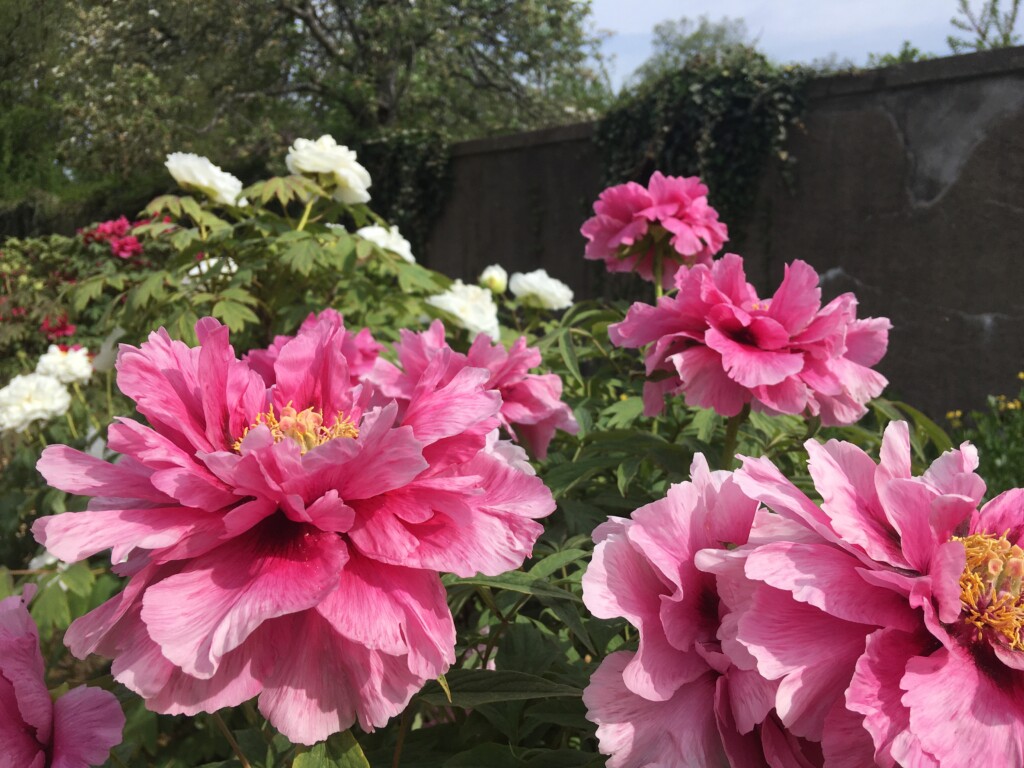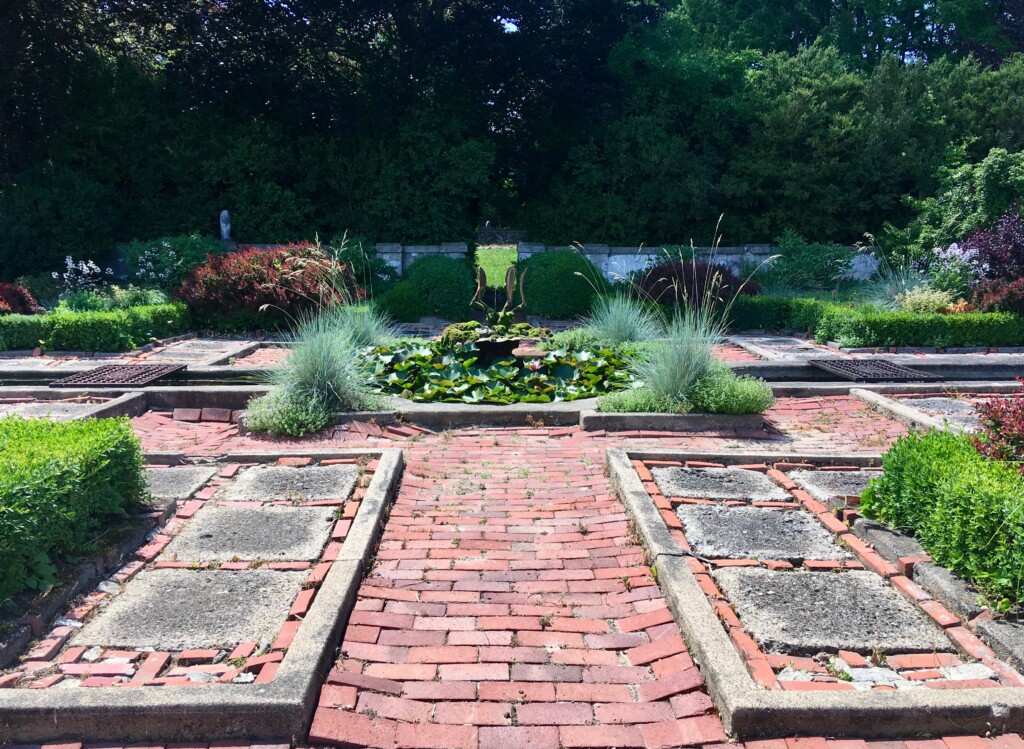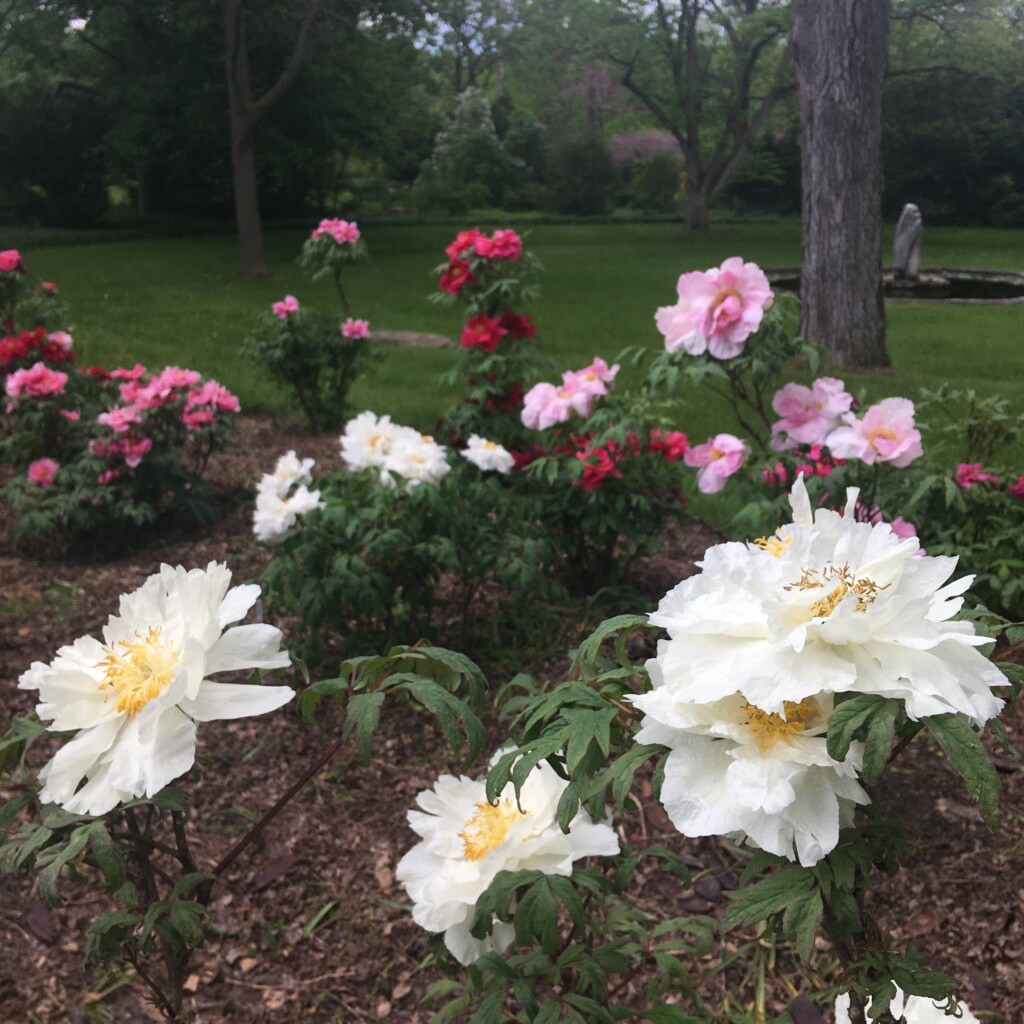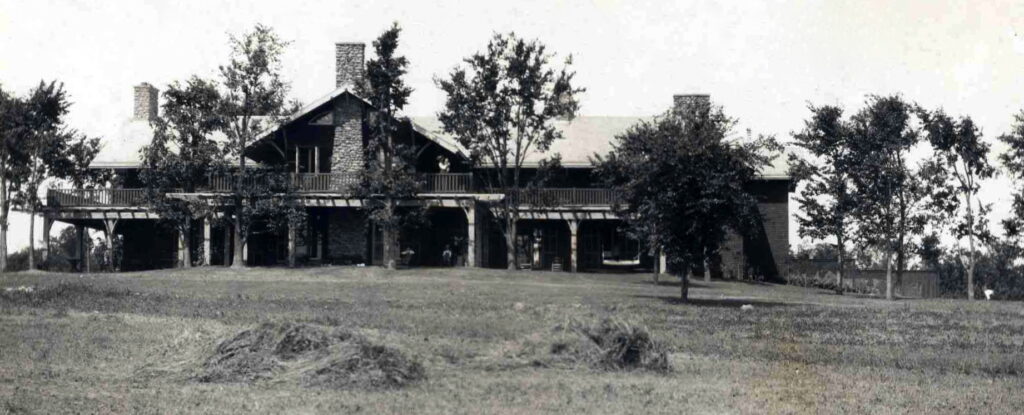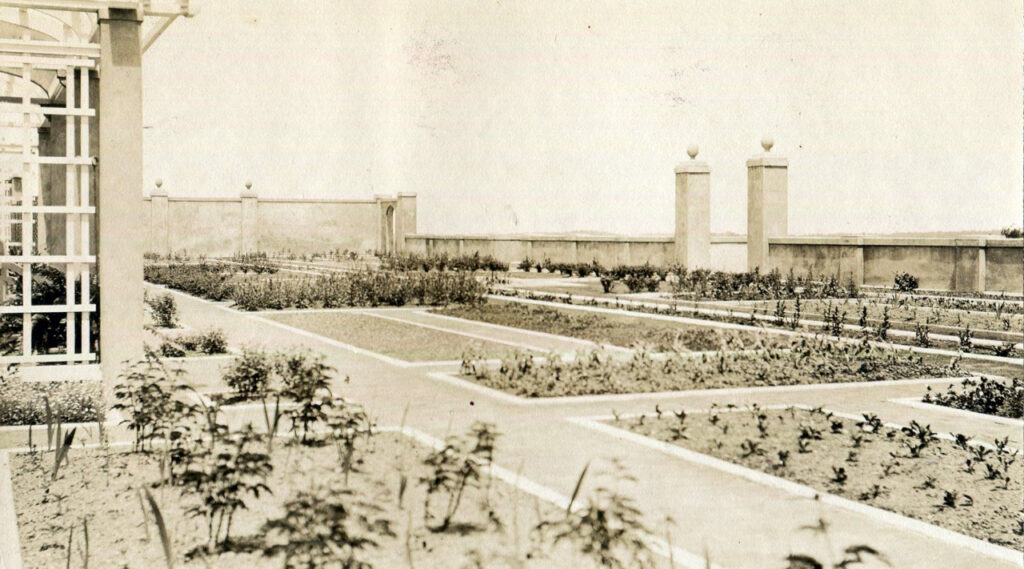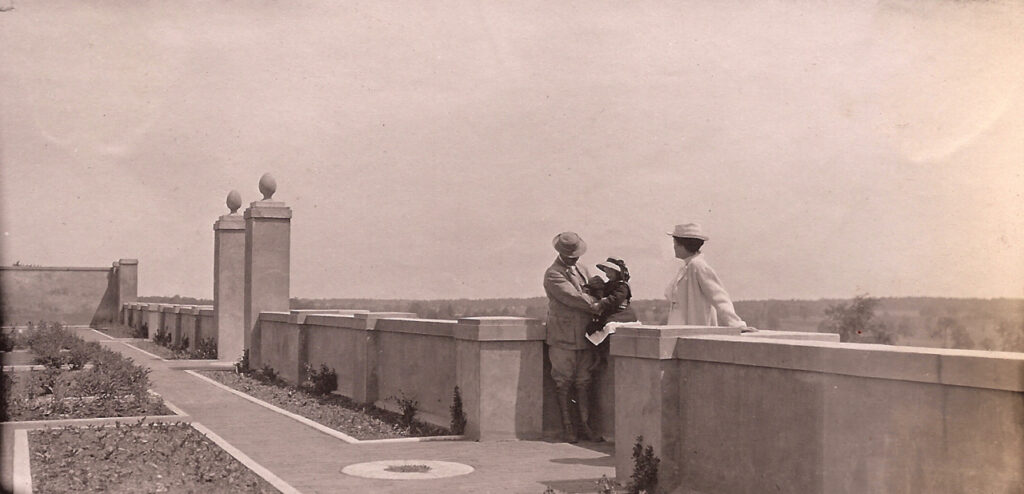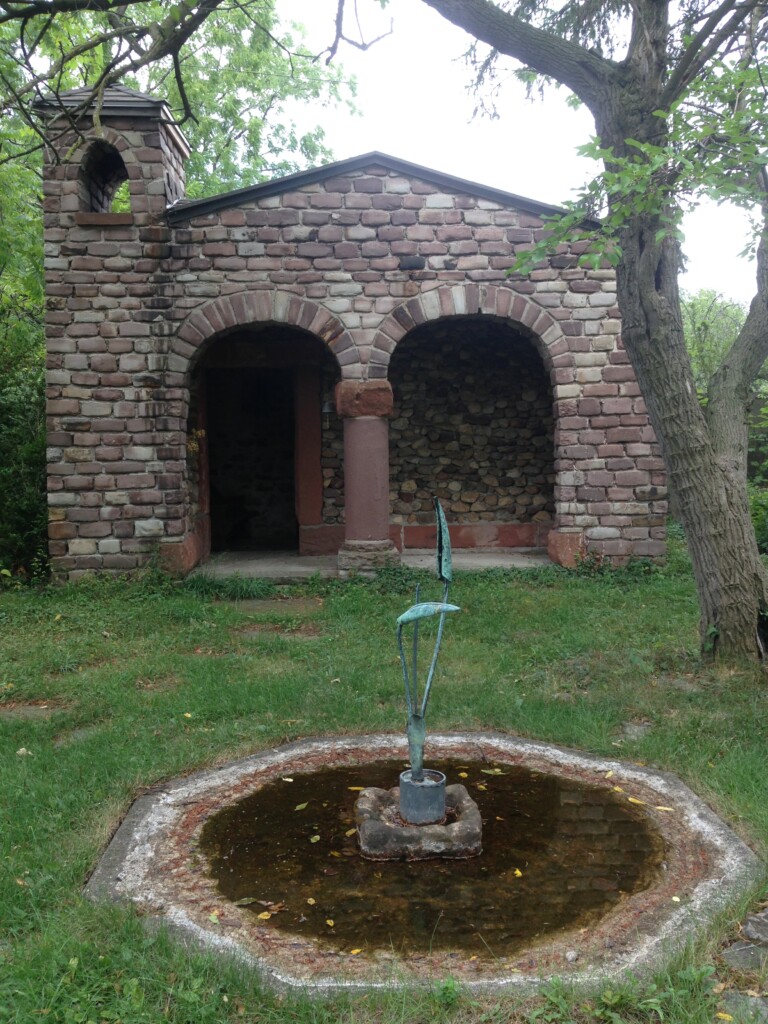Linwood is a quaint hamlet thirty miles southwest of Rochester. It is here that you will find Linwood Gardens, a lovingly maintained historic garden and home surrounded by peaceful woods without another residence in sight. In its preservation, Linwood offers insight into our local history and how community keeps our stories alive.
Born to an affluent family from Buffalo, William H. Gratwick Jr. managed his family’s lumber business, the source of the family’s wealth, and took to real estate investing. In 1901 Gratwick purchased the farmland in Linwood and began construction of a summer home—the fashionable thing to do for families of means looking to escape the oppressive heat of the summer in the cities. A series of formal gardens created to complement the new home was just as important as the structure itself, and Thomas Fox, a landscape architect from Boston, designed the surrounding terrain from the beginning of the century until 1910. That was the beginning of the horticulture adventure of the Gratwick family and their community connection to Linwood.
William H. Gratwick III (also known colloquially as Bill) was a hobby horticulturist. Bill and his wife, Harriett, lived full time at Linwood Gardens in the 1930s. Through the 1960s, Bill and several partners in his horticultural endeavors worked towards important contributions to the cultivation and hybridization of tree peonies. It is likely that the first of the formal garden plantings as well as the first tree peonies were purchased from the Ellwanger and Barry Nursery. The commercial tree peonies were available for purchase by the late 1940s, and by the 1950s 4,000 plants were for sale from the onsite nursery at Linwood Gardens thanks to Bill’s ingenuity. Linwood Gardens has an important place in horticultural history due to the uniqueness and exoticism of tree peonies, especially in Western New York. Tree peonies are native to China. The import of nonnative plants was an exciting prospect to both professional and novice gardeners alike. Not only were Gratwick and, especially, his partner, Nasso Daphnis, participants in this worldly exchange, they became pioneers in the hybridization of tree peonies. So many of these new varietals were deemed crucial that they developed forty-six different plants with forty-six different names, each registered with the American Peony Society. Their work and research furthered American hybrid tree peonies in an array of colors, and their hardiness was a match for northern climates.
The Gratwick family has a long history of being a part of the community fabric. Harriett, Bill’s wife and a member of the Boston Brahmin Saltonstall family, is responsible for the Linwood Music School. Harriett took it upon herself to become a better conductor for her York Grange Hall choir, so she went to the Eastman School of Music. After World War II, she decided that in addition to her grange work, she wanted to give broad musical instruction to the community and founded the Linwood Music School, which was open from 1947 through 1963. There students could learn singing as well as several different instruments. At the culmination of each season was a free community concert on the property grounds. It was also during this time that great artists such as William Carlos Williams, a notable American poet, visited the property.
Currently there are still several formal gardens at Linwood Gardens. Individual gardens were designed to be considered as rooms of a house since each is isolated with either a wall or plantings. Although they are meant to be separated so you feel as though you are in one distinct space, all are connected via a line of sight through the center of each garden.
There was a fire in 1973 that destroyed the servants’ wings of the main house. This disaster coupled with the later removal of the third floor means that the house is now about half the size of its original design. However, the home and gardens are on the National Register of Historic Places as an example of an early twentieth century country home complete with a formal garden. As the home transitions into yet another era, the stewards of the gardens are ever conscious of their duty to their surrounding environment and are becoming more concerned with native plantings.
Visitors should remember that Linwood Gardens is private property, and although it does open to the public, the days are limited and are prescheduled. The family, volunteers, and board are always thinking about ways to share the property more broadly with the public but still want to balance private and public access as members of the family still live onsite. The Tree Peony Festival started in 1996 and continues today. In 2023, there will be three weekends of the festival in May and June: May 20–21, May 27–28, and June 3–4. There will also be spontaneous weekdays that the property will be open to the public. Those interested will be able to find these dates on the website or social media. For any of these events, reservations will be necessary. Two ticket options are available for the festival: visit the gardens at your own pace or include a tour of the gardens with friendly, knowledgeable docents. The tour consists of history and horticulture, how the property got to be where it is, what has happened over the years, and why the tree peonies are there. The first floor of the home has lots of material of historic value and is open during the festival and is part of the property tour.
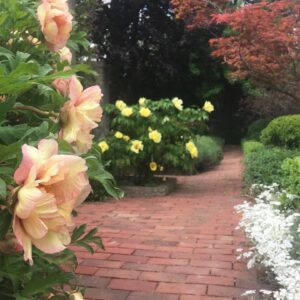
A registered nonprofit operates the festival, and income from the events goes directly into the organization to keep and care for the gardens. To offer the best visitor experience, the property does not plan to expand too broadly but instead wants to keep the incoming visitor base as is to keep the property a true oasis. In the future there may be an opportunity for more educational events focused on environmental education, bird walks, naturalist discussions, the woods, the ravine, guided recreation, and history.
Other events throughout the warm months, such as open garden days, will also be available. To know when these are available, check online at linwoodgardens.org or social media @linwoodgardens for more information and to learn how to make reservations. These open garden days are an opportunity to enjoy a peaceful stay in the garden and are a great time for photo shoots, creating art, or meeting a friend for exploration. Linwoodgardens.org




